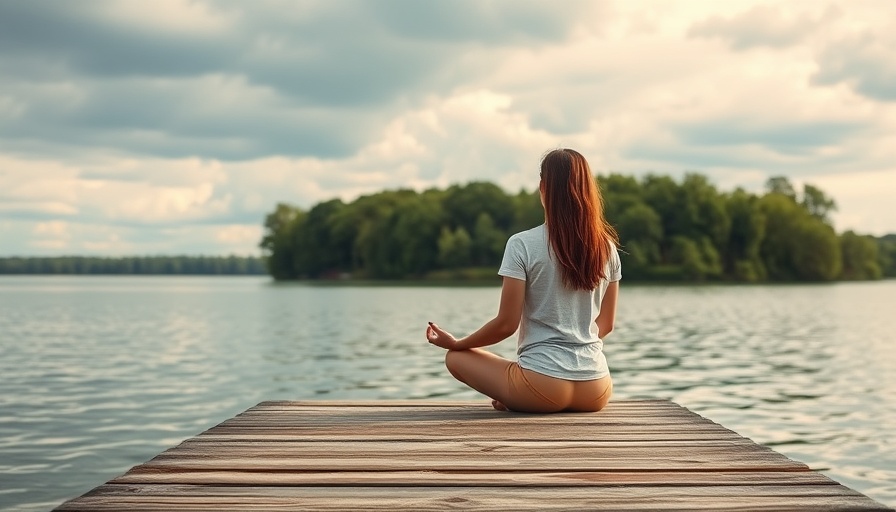
Harnessing the Power of Meditation for Sports Performance
In today's fast-paced world, athletes and outdoor enthusiasts are increasingly looking for ways to improve their mental edge. Enter meditation—a practice that can enhance not just relaxation but also focus, resilience, and performance under pressure. By applying the eight crucial rules of meditation, individuals involved in sports and hiking can find a powerful tool to augment their physical training.
The Eight Essential Rules of Meditation
As more people embrace meditation, understanding its foundational rules becomes vital. These essentials can greatly improve your practice, especially when paired with physical activities like sports or hiking:
1. Establish a Comfortable Posture
Finding a stable, comfortable posture is key. Unlike the traditional cross-legged pose, comfort can come in various forms—sitting in a chair, resting on a cushion, or even lying down. The objective? A position where your body feels supported, ready for silent exploration. For athletes, a relaxed posture reflects alertness, helping maintain focus before or after training sessions.
2. Focus on Your Breath
The breath serves as a natural anchor within meditation. By tuning into the breath, athletes learn to center their awareness and quiet their minds. This technique is critical for sports performance; whether waiting for a race to start or managing pre-game jitters, focused breathing can sharpen concentration and enhance emotional balance.
3. Accept Thoughts Without Judgment
One common pitfall in meditation is believing a tranquil mind equates to success. Realistically, thoughts will intrude—this is a natural part of the process. Accepting these thoughts without judgment can enhance mental fortitude. For competitive individuals, this rule promotes resilience against distractions, allowing them to refocus their mental energy back on their goals.
4. Meditate Regularly for Consistency
In sports, practice is everything. Similarly, meditation thrives on consistency. Setting aside time daily—even if just a few minutes—can yield profound benefits, as the brain and body gradually attune to a reflective state. Athletes may find that regular meditation enhances their focus and community in performance, leading to better results over time.
5. Embrace the Limits of Time
It's easy for newcomers to feel pressured to meditate for long periods. However, starting with even ten minutes can be effective. Recognizing that meditation adapts to personal schedules can alleviate some stress that might hinder the practice. For athletes, integrating short sessions before or after workouts might prove beneficial, providing a moment to recover both physically and mentally.
6. Create a Distraction-Free Environment
A quiet and dedicated space for meditation can significantly boost effectiveness. This habit can lead to deeper relaxation and connection with oneself—elements that positively influence performance in high-pressure situations. When preparing for competitions, finding a mental sanctuary amidst the chaos can enhance an athlete's readiness and poise.
7. Use Guided Meditations for Beginners
New meditators can benefit immensely from guided sessions. Whether using apps or local classes, having a structured approach can help demystify the practice and make it more accessible. For athletes lacking experience, a guided meditation focusing on visualization techniques can enhance mental rehearsal strategies, valuable before competitions or outdoors adventures.
8. Keep an Open Mind
Every meditation experience is unique. Approaching meditation with openness allows newfound revelations about oneself, facilitating personal growth that extends beyond the cushion. Athletes, who often thrive on refining skills, might find this aspect enriching through newfound insights about their mental conditioning and emotional responses.
The Most Important Rule: Practice Patience
Ultimately, the most critical 'rule' is patience. Meditation is a journey rather than a destination. Just as athletes train to improve over time, so too does one's meditation practice develop with consistent effort. Emphasizing patience can foster resilience and promote a prevention mindset—a vital quality not only in sports but also in handling life's setbacks.
The Emotional Impact of Meditation
For outdoor enthusiasts and athletes alike, meditation fosters emotional balance, especially during training seasons laden with stressors. Balancing mental clarity with physical exertion can equate to an athlete’s competitive edge. Simple meditation practices redefine how one interacts with pressures, leading to greater enjoyment in outdoor activities and sports.
Conclusion: Unlocking Potential Through Mindful Practice
As sports and outdoor enthusiasts seek new ways to enhance their physical capabilities, integrating meditation principles into daily routines can unlock groundbreaking advantages. Understanding these eight rules provides not merely guidelines but a pathway to mental clarity, emotional strength, and heightened performance. Embrace meditation, cultivate your practice, and watch how it transforms your athletic journey.
Act Now: Are you ready to enhance your sports performance with mindfulness? Start integrating these meditation principles into your routine today for a more balanced and focused approach!
 Add Row
Add Row  Add
Add 




Write A Comment